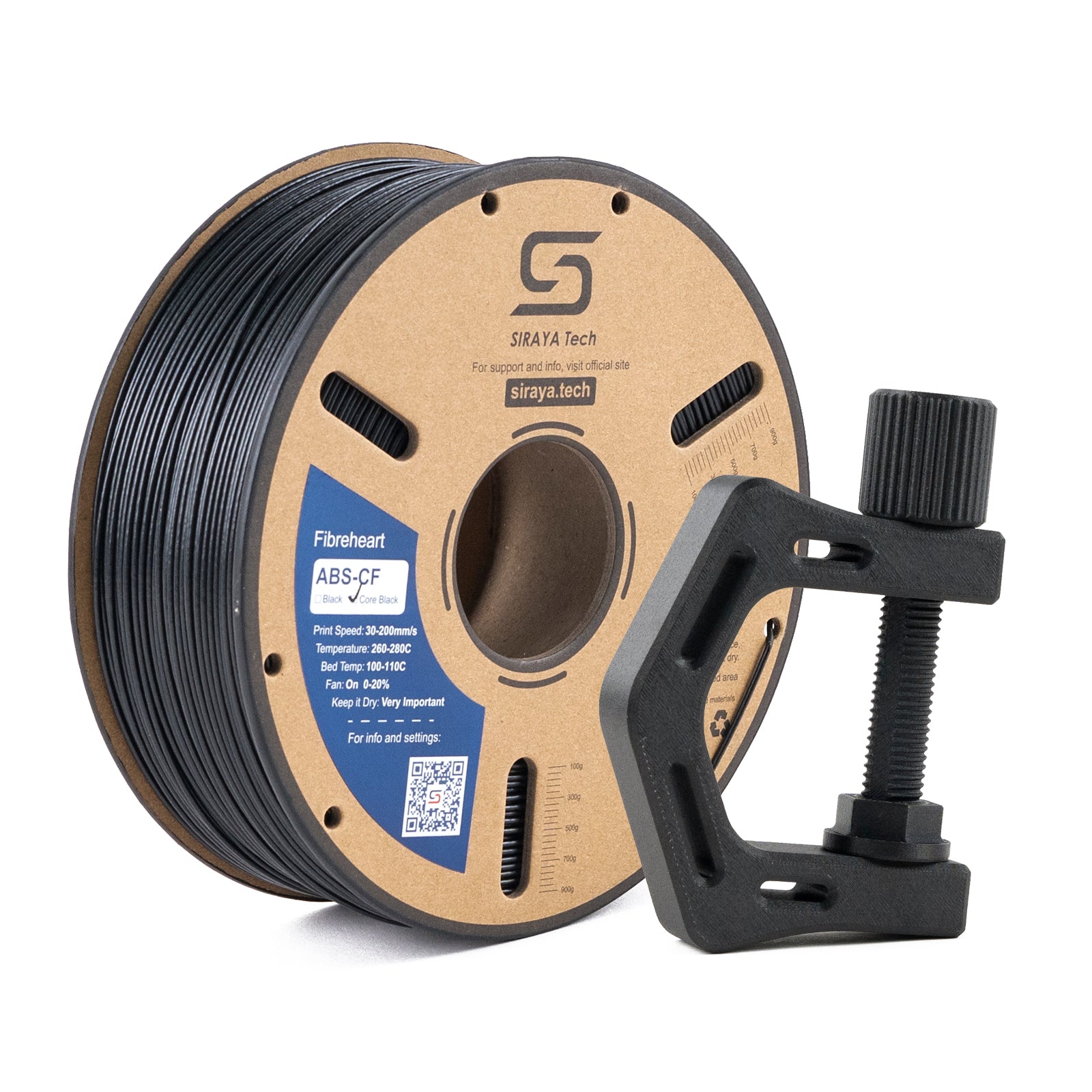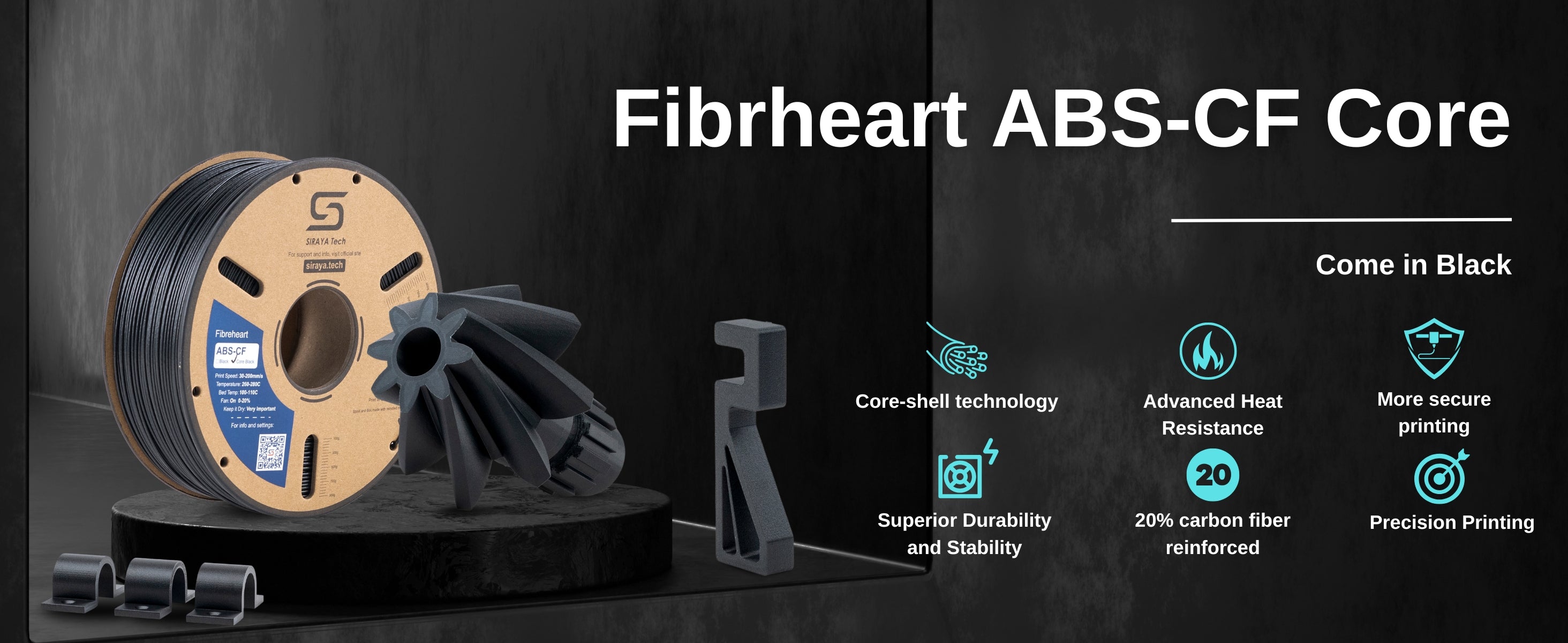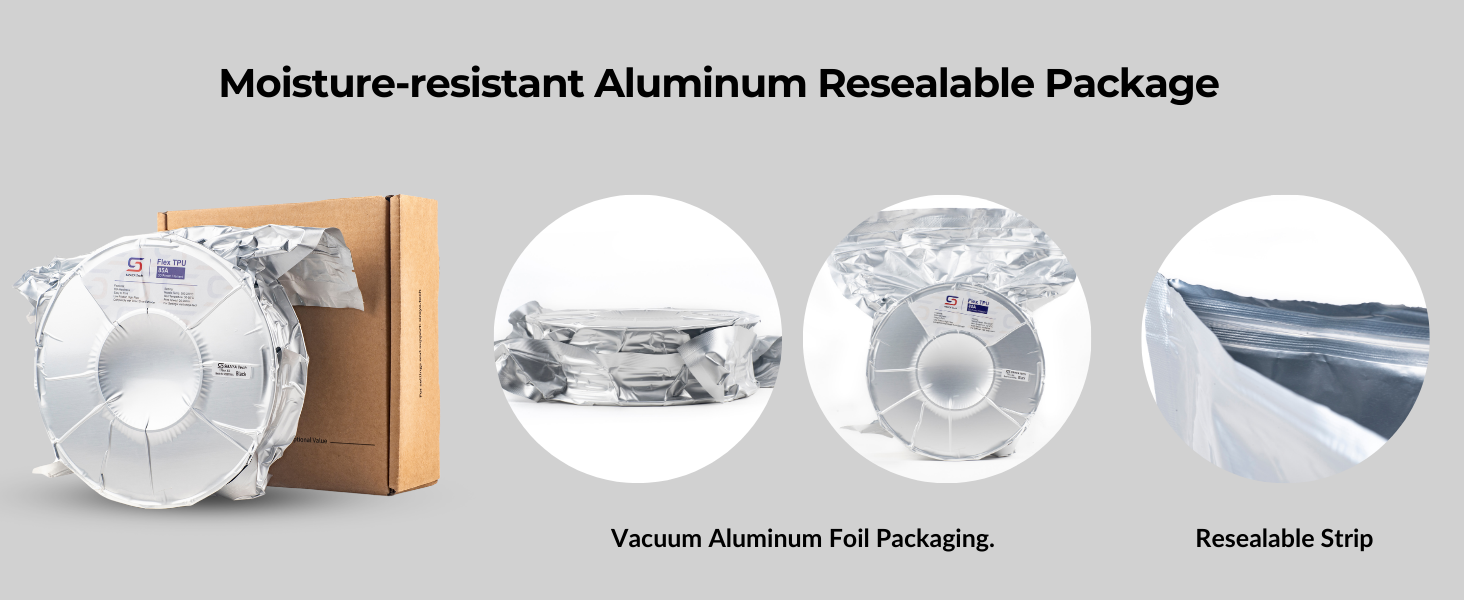説明
Amazonで購入可能
主な特徴:
- 強化された強度:優れた剛性を実現する 20% コア集中カーボン ファイバー。
- より強力な層接着: Z 軸の強度と結合が向上しました。
- ノズルの摩耗の低減:繊維との接触が少なくなり、ノズルの寿命が延びます。
- 耐熱性:高温用途で最大 90°C まで耐えます。
- より安全でクリーンな印刷: VOC が少なくなり、繊維への露出が減ります。
用途:
- 航空宇宙:ドローンや UAV 向けの軽量で耐久性のあるコンポーネント。
- 自動車:ボンネット下の用途向けの耐熱部品。
- 工業用:耐久性の高い、過酷な使用に耐えるツールと治具。
- ロボット工学:高度なロボット工学のための精密な耐荷重部品。
- エンジニアリング:厳格なテストに耐える高強度のプロトタイプ。
Siraya Tech Fibreheart ABS-CFコアを選ぶ理由
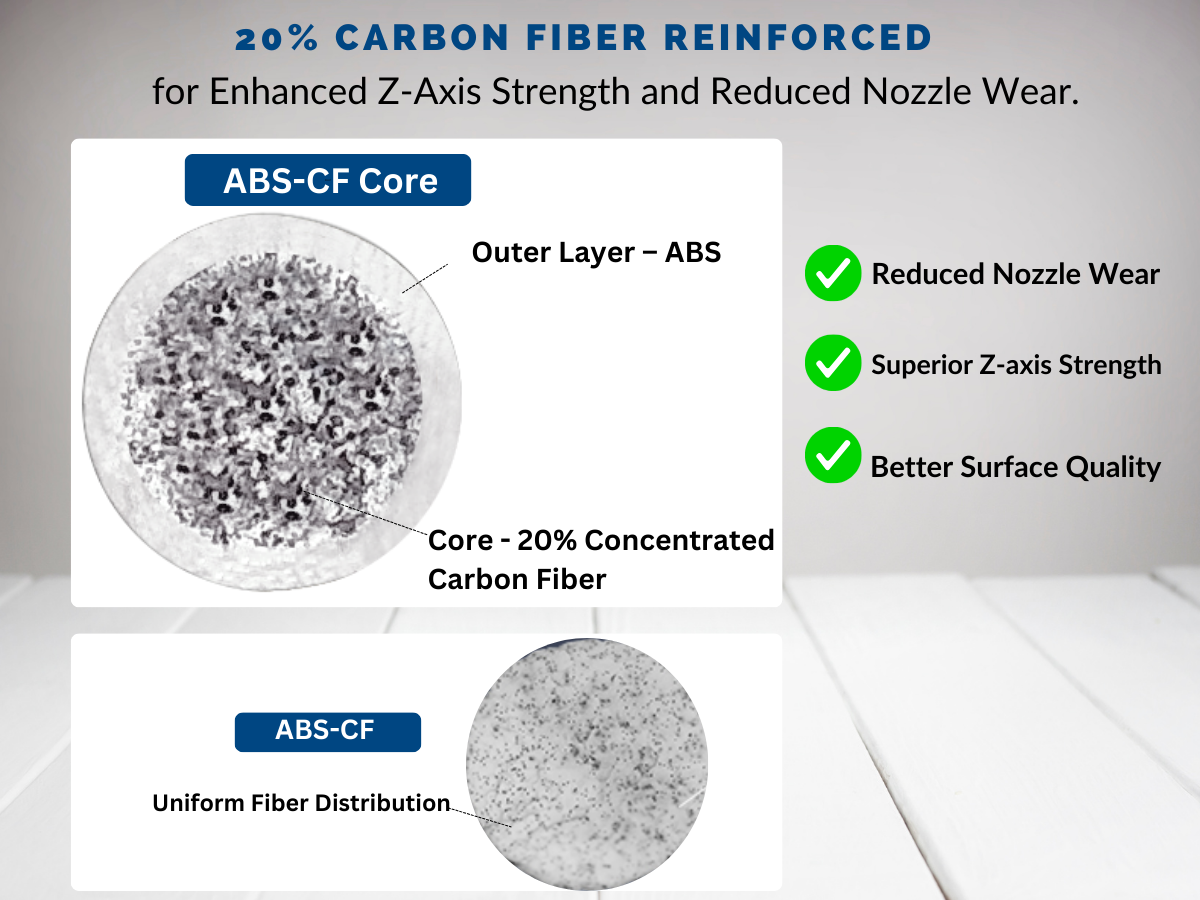
革新的なコア強度設計
このフィラメントは、コア部分に 20% の炭素繊維強化材を集中させることで、印刷品質や表面の滑らかさを犠牲にすることなく、優れた剛性と構造的完全性を実現します。
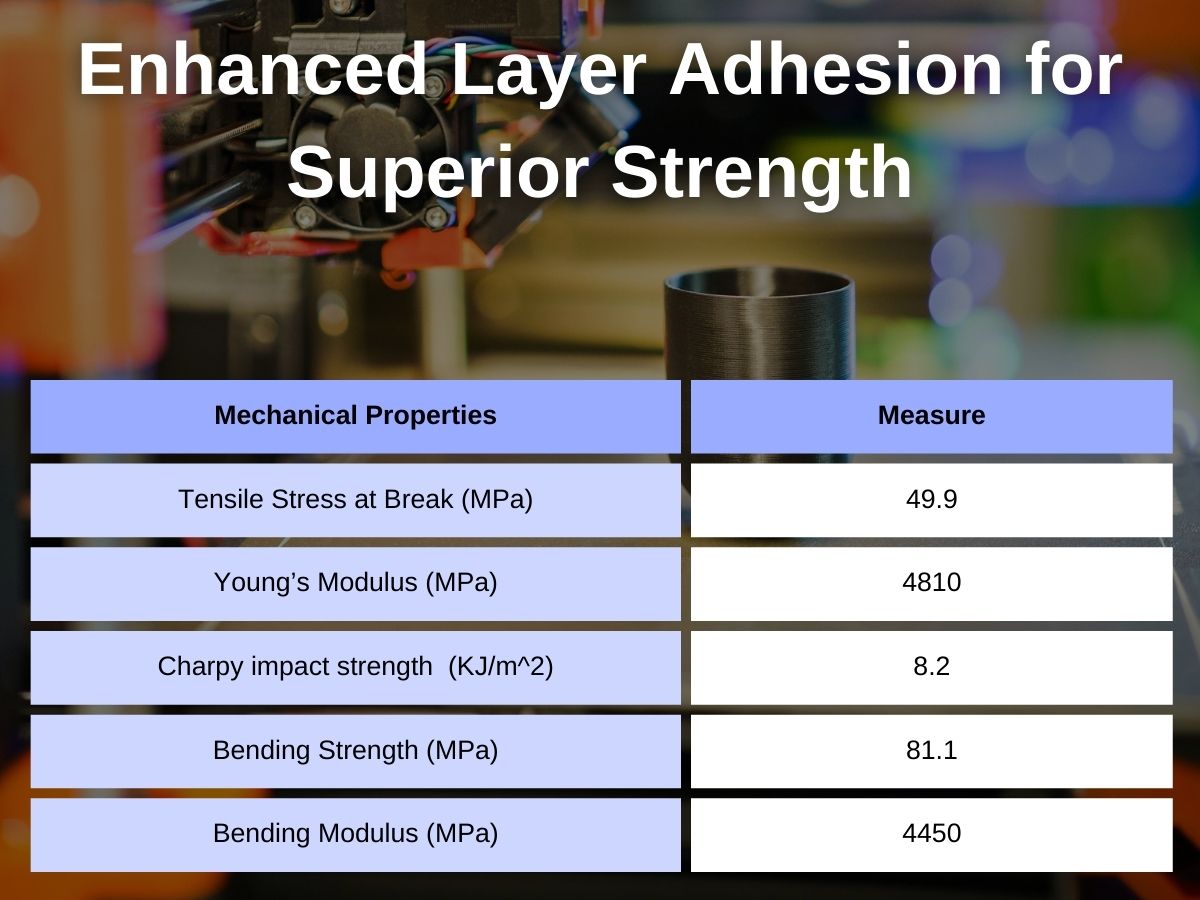
優れた強度を実現する強化された層接着
層結合が改善され、優れた強度と部品の耐久性が実現します。堅牢で信頼性の高い機械的特性が求められる用途に最適です。
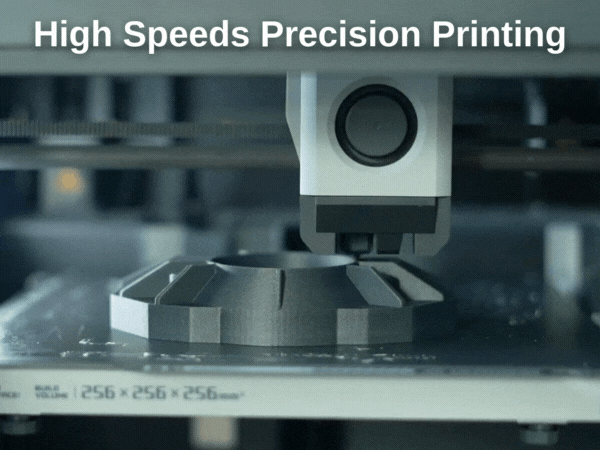
高速精密印刷
独自のコア構造により、最大 200 mm/秒の高速印刷を一貫した品質で実現し、細部や強度を損なうことなく効率的な生産を実現します。
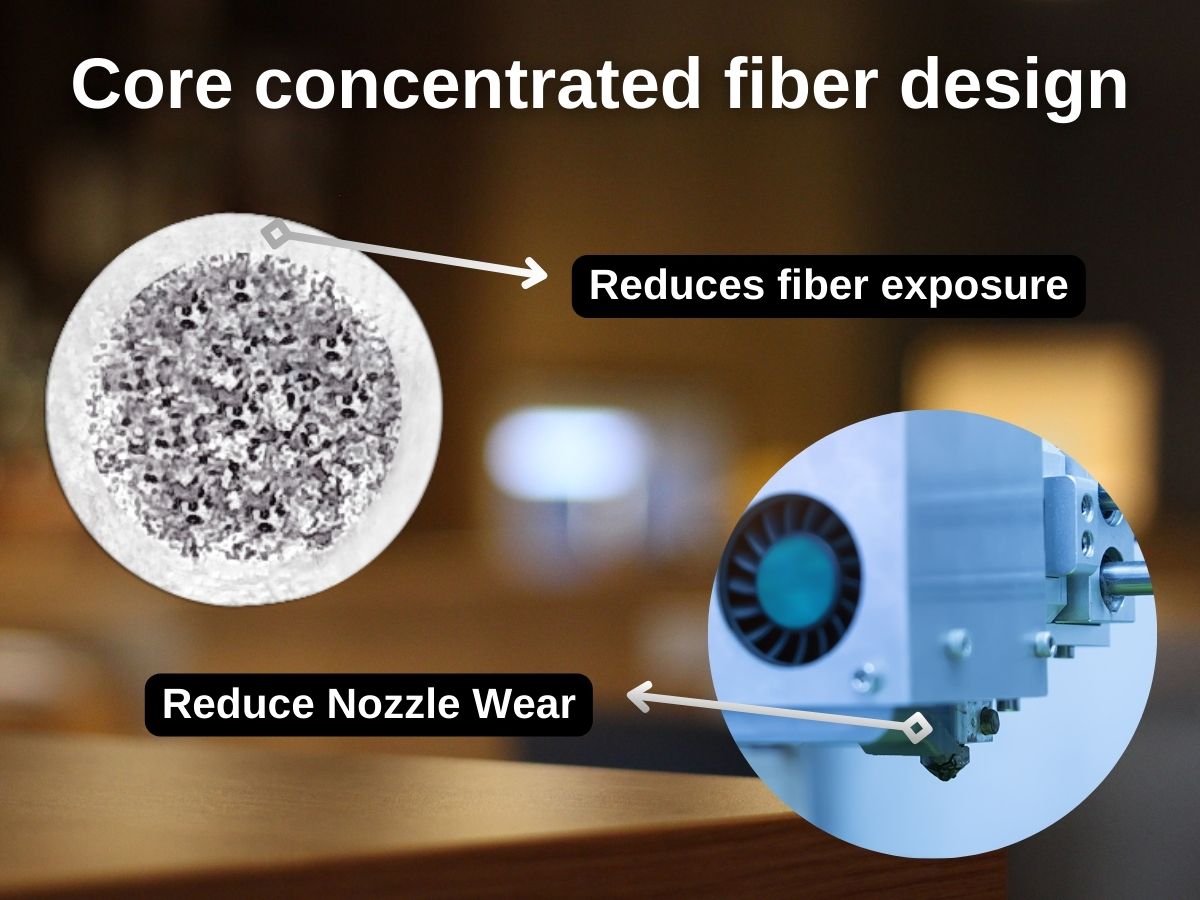
摩耗を最小限に抑えてノズル寿命を延長
革新的な設計により、繊維とノズルの直接接触が減り、特に耐摩耗性ノズルと併用した場合に、コンポーネントの寿命が延び、メンテナンスが最小限に抑えられます。
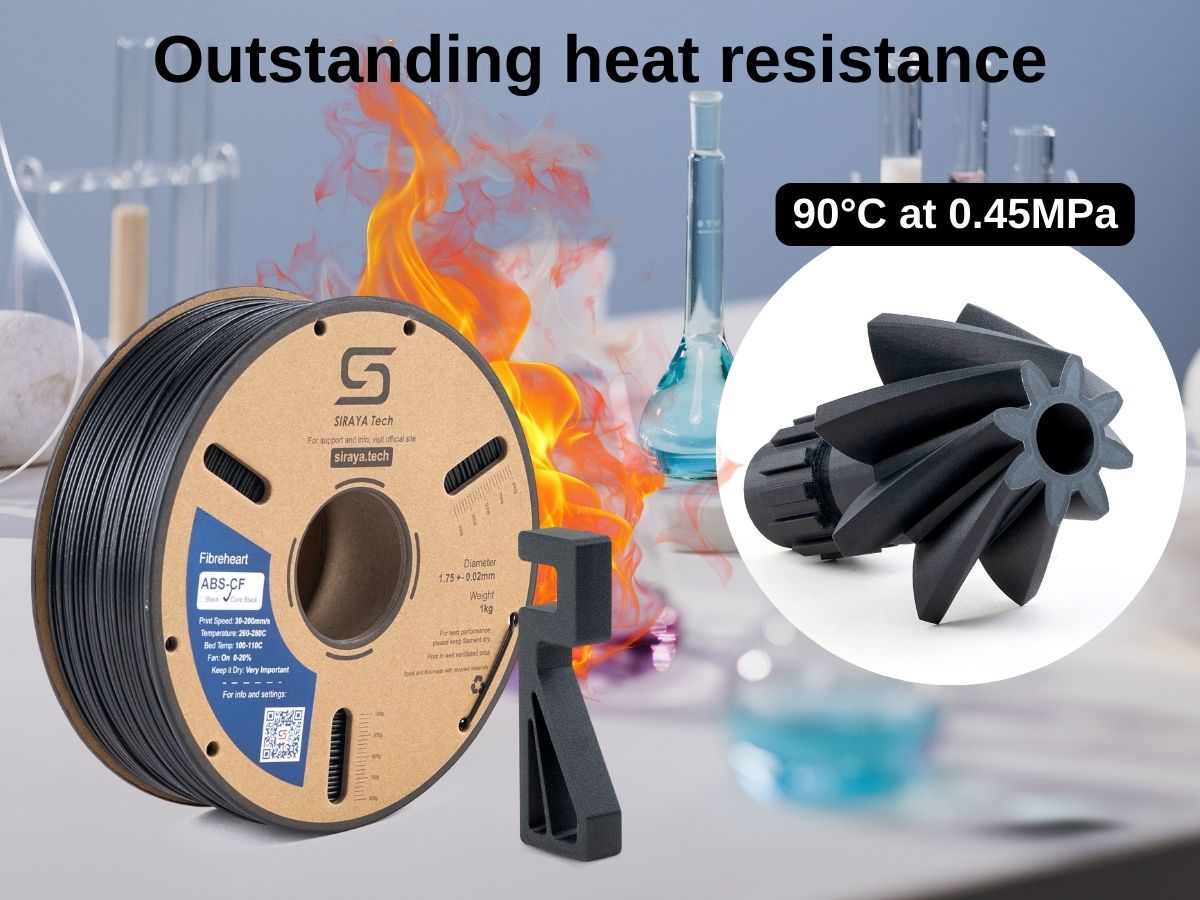
要求の厳しい用途に対応する耐熱性
熱変形温度が 90°C のこのフィラメントは、耐久性が重要となる高温、産業、エンジニアリング用途に最適です。
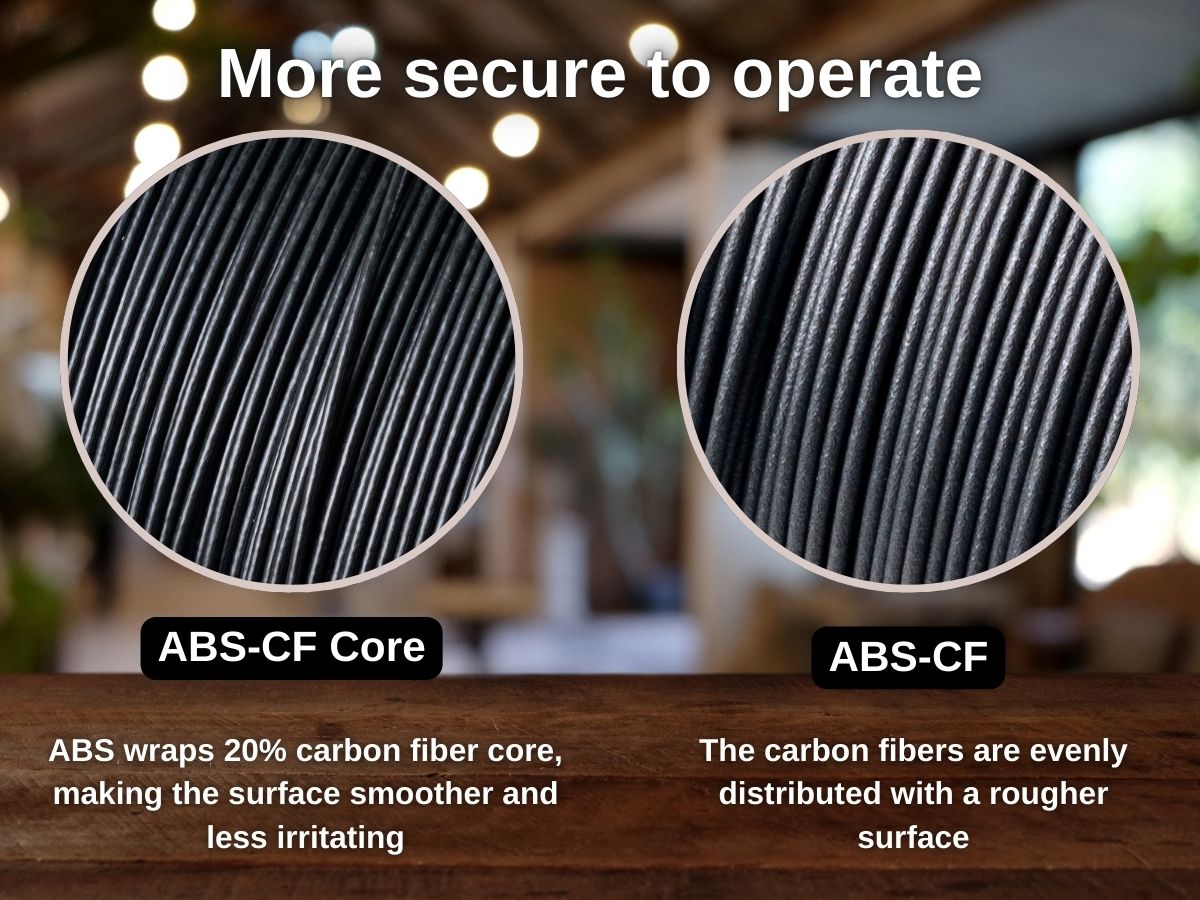
より安全な取り扱い
表面の繊維が少ないため、皮膚への刺激のリスクは軽減されます。ただし、安全性を最大限に高めるため、印刷した部品を扱う際はPU手袋の着用をお勧めします。
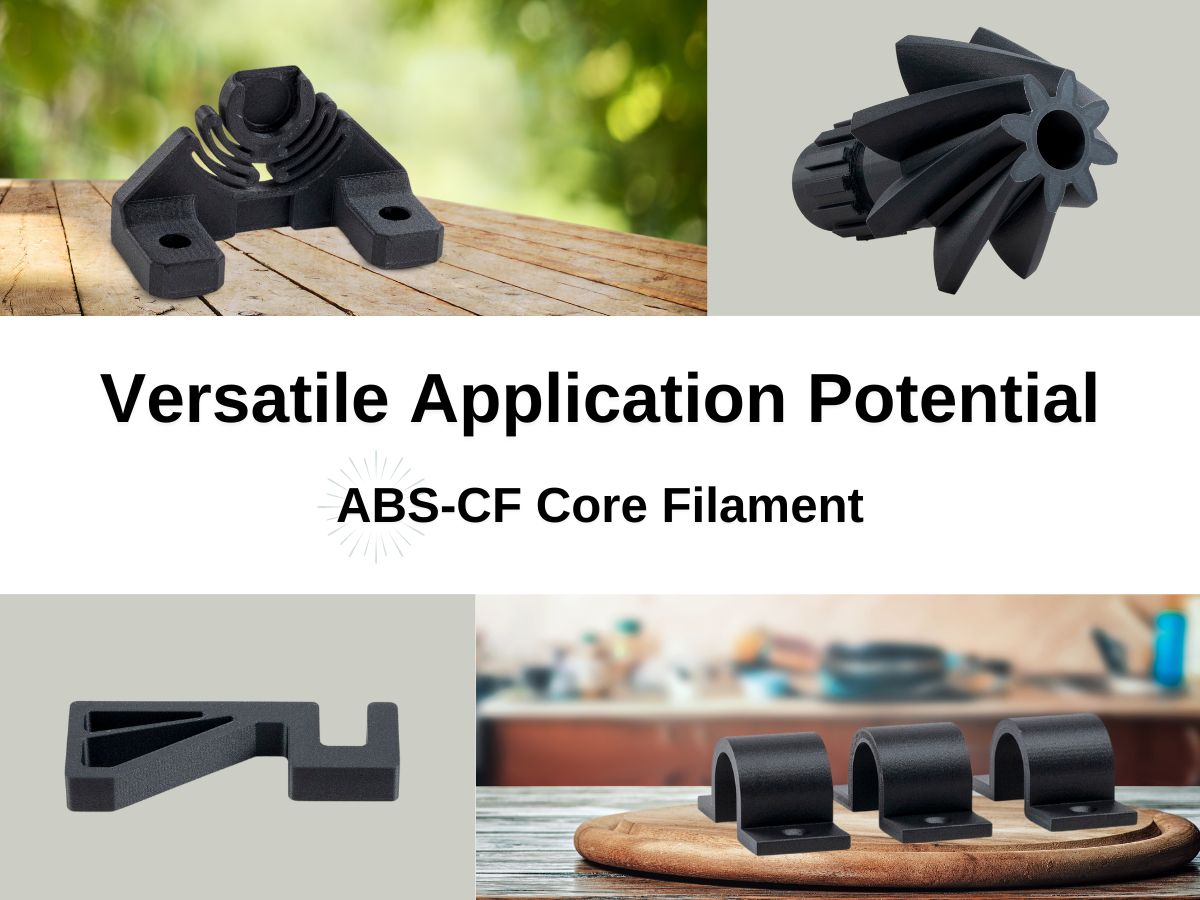
アプリケーション
ABS-CF Core Blackフィラメントは、20%のカーボンファイバーを含有し、優れた強度と剛性を実現。航空宇宙、自動車、産業用部品に最適です。コア構造により、層間の密着性が向上し、ノズルの摩耗が低減し、耐久性も確保されているため、高精度で長寿命のアプリケーションに最適です。
Siraya Tech Fibreheart ABS-CF Coreの印刷方法
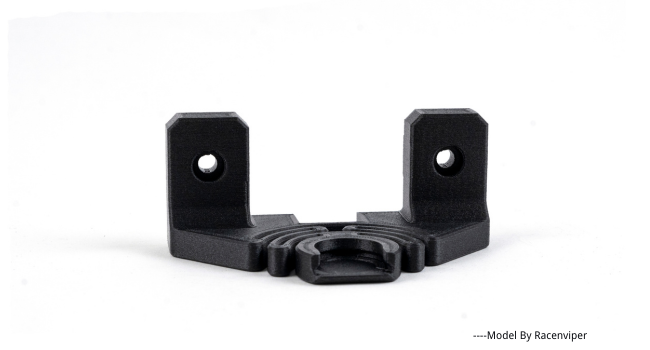
最適な印刷パラメータ
ノズル温度: 250~280℃
ビルドプレート温度: 100~110°C
印刷速度: 30~200 mm/
推奨ノズル径: 0.4~1.0 mm
ノズル材質:硬化鋼
最小加熱ブロック厚さ: 12mm
後退距離: 1~3 mm
引き込み速度: 1800~3600 mm/分
ビルドプラットフォームの材質: PEIフィルムが推奨され、接着力を高めるためにオプションでグルースティックまたはPVP接着剤コーティングが使用できます。
冷却ファン: 0~20%の速度で動作
非常に高速な速度はコアシェル構造に影響を与える可能性があるので注意してください。表面品質が低下する場合は、温度を上げるか速度を下げてください。
水分管理
炭素繊維強化 ABS フィラメントは吸湿しやすく、印刷品質に影響を及ぼす可能性があります。
(1)保管
フィラメントは使用しないときは、元の防湿包装に入れて保管してください。長期保管の場合は、乾燥剤を入れたドライボックスの使用をお勧めします。
(2)乾燥フィラメント
ABS-CF コアは防水アルミで包装されており、密封前にすでに乾燥されているため、初めてパッケージを開封した後すぐに印刷できます。
印刷品質の低下(気泡、糸引き)が見られる場合は、印刷前にフィラメントを60~70℃で4~6時間乾燥させてください。フィラメントが湿っている場合にのみ乾燥させてください。
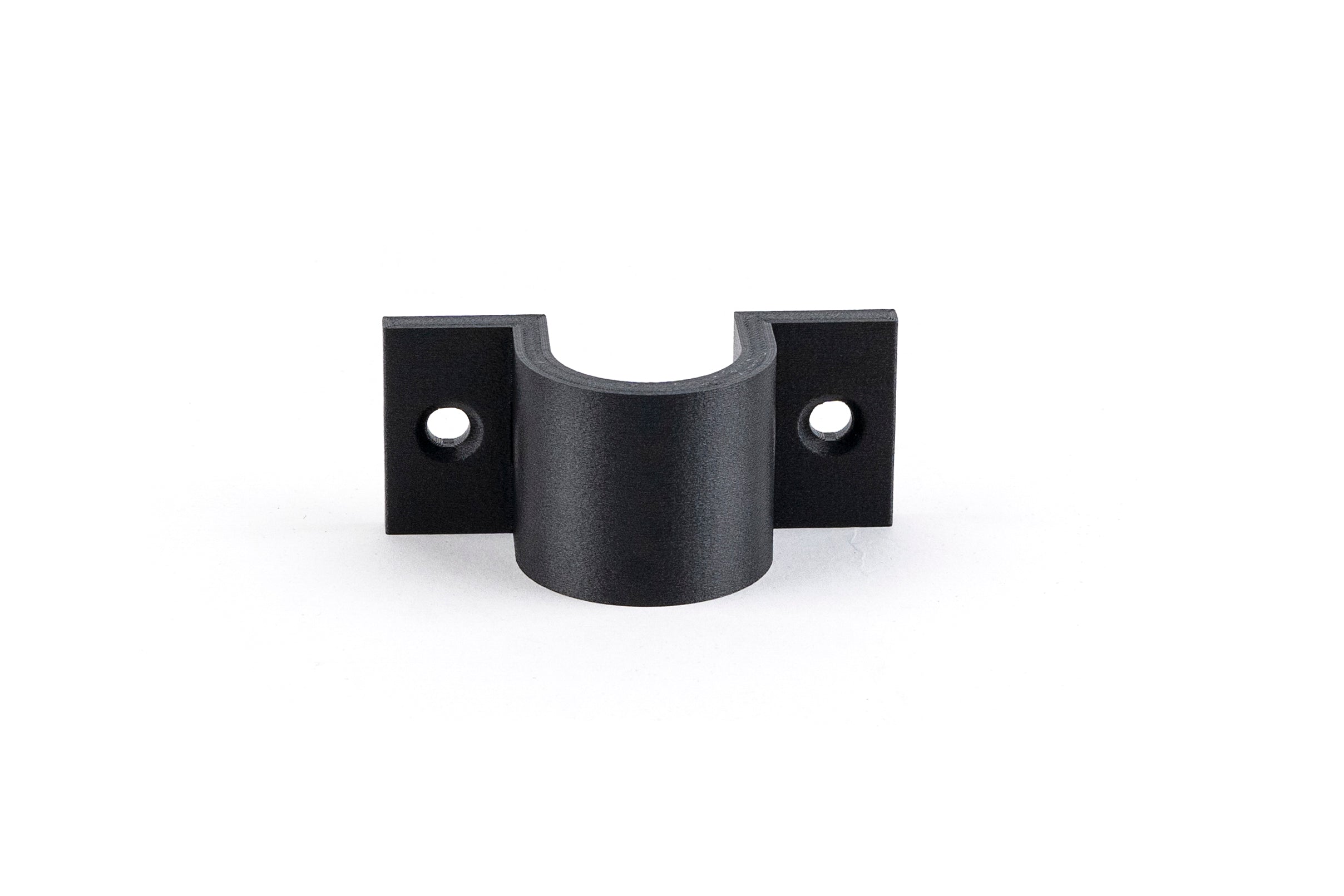
よくある質問
CHTタイプのマルチパスノズルをFibreheart ABS-CFコアと併用すると、印刷面が著しく粗くなる可能性があることにご注意ください。これらのノズルの独自の設計により、フィラメント内のカーボンファイバーコアが分散・再分配されるため、繊維が分散し、表面仕上げが損なわれます。最適な印刷品質を得るには、0.4mm以上の開口部を持つ標準的な硬化鋼製ノズルのご使用をお勧めします。
ABS-CF コア フィラメントを使用して印刷するには、3D プリンターに次のものが必要です。
- ノズル温度250~280℃
- 100~110℃に達する加熱ベッド
- 最適なベッド接着のためのPEIシートまたはPVP接着剤スティック
- 層の結合を改善し、反りを最小限に抑えるエンクロージャ
- 炭素繊維強化材を扱うための硬化鋼または耐摩耗性ノズル
ABS-CFコアには20%のカーボンファイバーが含まれているため、研磨性が高く、標準的な真鍮ノズルを急速に摩耗させる可能性があります。以下の製品のご使用を強くお勧めします。
- 0.4mm以上の硬化鋼ノズル
- 長寿命を実現するルビジウムまたはタングステンカーバイドノズル
- 高速印刷の場合は、目詰まりを防ぐために少なくとも0.6mmの直径のノズルを使用してください。
作成者と製品によって異なります。すべてのオプションは製品ページに記載されていますので、カスタマイズオプションをご確認ください。

